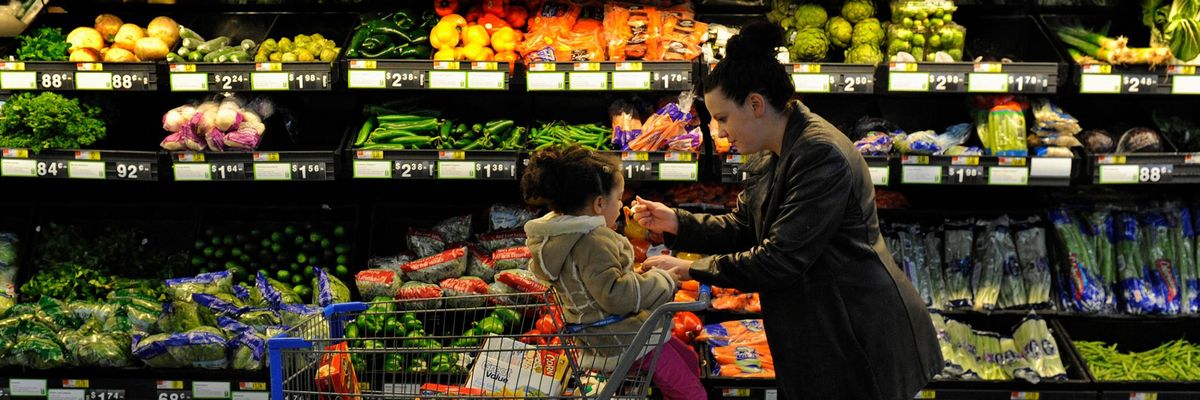A dozen states are poised to walk away from a combined $1.14 billion in federal funding that would help alleviate hunger for nearly 10 million children next summer, according to Food Research & Action Center, or FRAC, a nonprofit that addresses poverty-related hunger.
The 12 states, all of which are GOP-led, face a January 1 notice of intent deadline to participate in the Summer Electronic Benefit Transfer (EBT) Program, also known as SUN Bucks. Under the food assistance program, families with eligible school-age children can get $120 per summer to buy food.
"Summer can be the hungriest time for children," said Crystal FitzSimons, FRAC's interim president, in a Monday statement. "This funding is an opportunity for states to ensure children have access to the nutrition they need to grow, thrive, and return to school ready to learn. No child should have to go hungry during the summer months, especially when solutions like Summer EBT exist."
Currently, Idaho, Alaska, Wyoming, South Dakota, Iowa, Oklahoma, Texas, Mississippi, Tennessee, Georgia, South Carolina, and Florida are set to potentially not participate in the program for this coming summer, according to FRAC. All other U.S. states, Washington, D.C., all U.S. territories, as well as the Cherokee Nation and the Chickasaw Nation are participating this coming summer.
The Summer EBT Program is one of multiple Summer Nutrition Programs administered through the U.S Department of Agriculture. Last summer, the SUN Bucks "bridged the gap" for some 21 million children in 37 states, as well as D.C., all U.S. territories, and multiple Native American tribes, per FRAC.
While the Summer EBT Program, or SUN Bucks, doesn't have widespread name recognition, a poll conducted by Data for Progress this past summer found that once voters read a description of the policy, it enjoyed strong bipartisan support from voters.
The governor of Tennessee has indicated that he will not renew the Summer EBT Program for the state, according to NBC News, despite the fact that FRAC estimates that hundreds of thousands of children would be eligible for the benefit this coming summer. According to FRAC, the program would result in approximately $77.2 million in benefits for struggling families in Tennessee.
FRAC and at least one other group are urging the governor to change course. According to NBC's reporting, advocates say Tennessee presents a particularly acute need for the program because the state's topography can make it hard for families to reach food banks or other meal distribution sites. Also, some communities in the eastern part of the state that struggle with hunger and poverty were also impacted by Hurricane Helen earlier this year.




